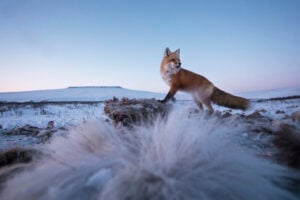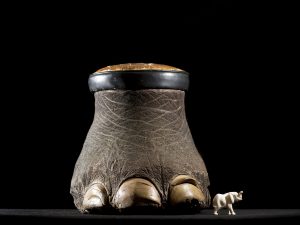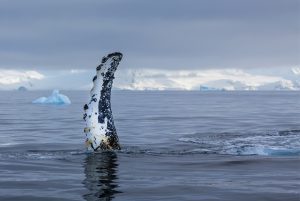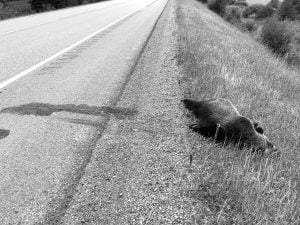
Wildlife
Do not disturb: Practicing ethical wildlife photography
Wildlife photographers on the thrill of the chase — and the importance of setting ethical guidelines
- 2849 words
- 12 minutes
This article is over 5 years old and may contain outdated information.
Wildlife

I jump out of the Zodiac and look left. A hanging glacier perches on a wall of rock and snow capped peaks soar over the beach, where hundreds of elephant seals mingle with 100,000 king penguins and nine month old chicks. This is Gold Harbour on South Georgia Island, a remote bay in the Southern Ocean, 2000 km from the South American coast.
South Georgia Island is not big — at just 160 km long it registers no more than a dot on the world’s map, but it is also home to millions of penguins and fur seals, whales, wandering albatrosses and giant elephant seals. Towering mountains and unpredictable weather define this place. Here, the wind rules – it either screams out of the Drake Passage to the west or comes from the jet-engine-strength katabatics that are born on the glaciers. It is situated in the Southern Ocean, a place where the Earth’s largest oceans, the Atlantic, Pacific and Indian Oceans meet the coldest, densest ocean water on earth, to foster a cornucopia of marine life.
It’s spring in the southern hemisphere. Mating season is in full swing for these birds and mammals. The noise is deafening, bull elephants bellowing, penguins shrieking; it feels like David Attenborough should be narrating.
The largest of the male elephant seals (aka the masters of the beach) have their harems and territories established. These are his girls, so other males better keep their distance or there will be a price to be paid. Thousands of king penguin chicks, large bundles of brown feathers, mingle with the adults. How they can find their parents in this mass of birds is truly a mystery.
I’m only here for four hours so between trying to capture this surrealistic place with my camera as well as taking the time to realize where I am is a formidable task. I am overwhelmed by the smells and sounds.
One minute later a bull spots a pretender to the throne; with astonishing speed he slides his massive, 3600 kilograms bulk across the beach bellowing his displeasure, rolling over females and young pups to get at the imposter. He rears up, opens his mouth and plants it on the rival, who leaves the scene quickly. The young male knows fully well he has no chance to take over the harem. The reality is he will have to wait another year before he can challenge the beach master.
The scenes unfold quickly here — the next minute there is a birth and a new elephant seal joins the herd. Giant petrels and skuas gather to eat the placenta and the newborn is forced to do battle, minutes into its life. On the top of the beach, a less fortunate baby elephant seal is now a meal for the giant southern petrels. The hierarchy of the petrels is evident: there is an alpha bird that chases all others away, bending its wings as it circles the kill.
Rob Stimpson is a Fellow of The Royal Canadian Geographical Society. He is sending dispatches from a One Ocean Expeditions’ Antarctic cruise
Click on this photo to see a slideshow:







Are you passionate about Canadian geography?
You can support Canadian Geographic in 3 ways:

Wildlife
Wildlife photographers on the thrill of the chase — and the importance of setting ethical guidelines

Wildlife
An estimated annual $175-billion business, the illegal trade in wildlife is the world’s fourth-largest criminal enterprise. It stands to radically alter the animal kingdom.

Environment
Ten years after the release of her seminal book Sea Sick, Alanna Mitchell again plumbs the depths of the latest research on the health of the world’s oceans — and comes up gasping

Wildlife
This past summer an ambitious wildlife under/overpass system broke ground in B.C. on a deadly stretch of highway just west of the Alberta border. Here’s how it happened.